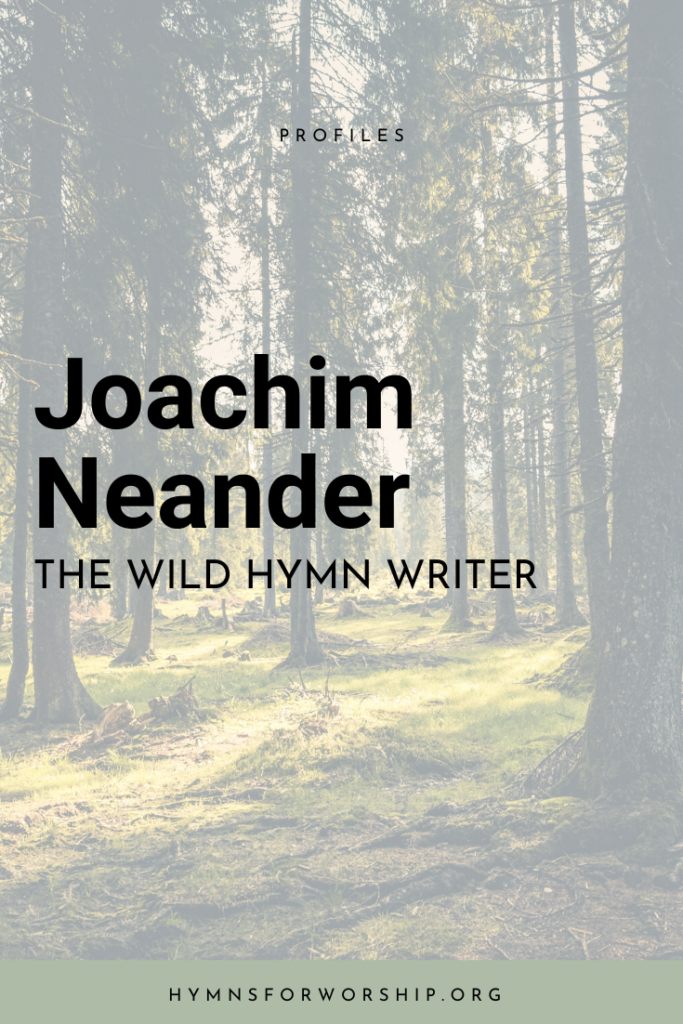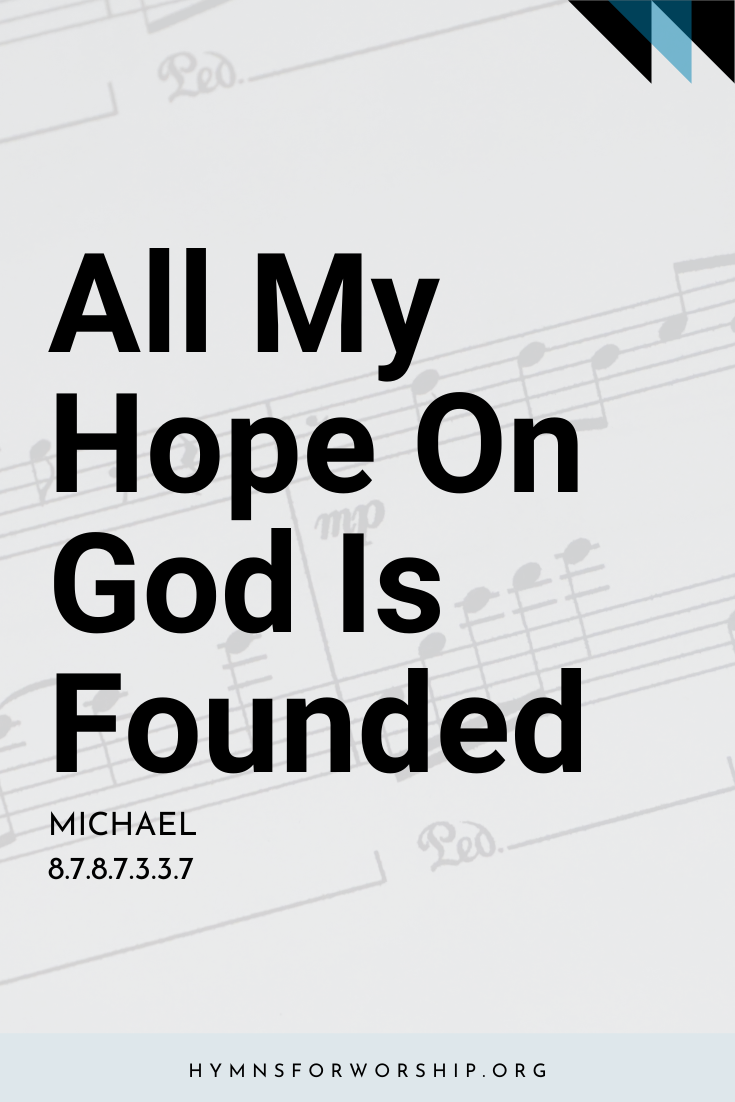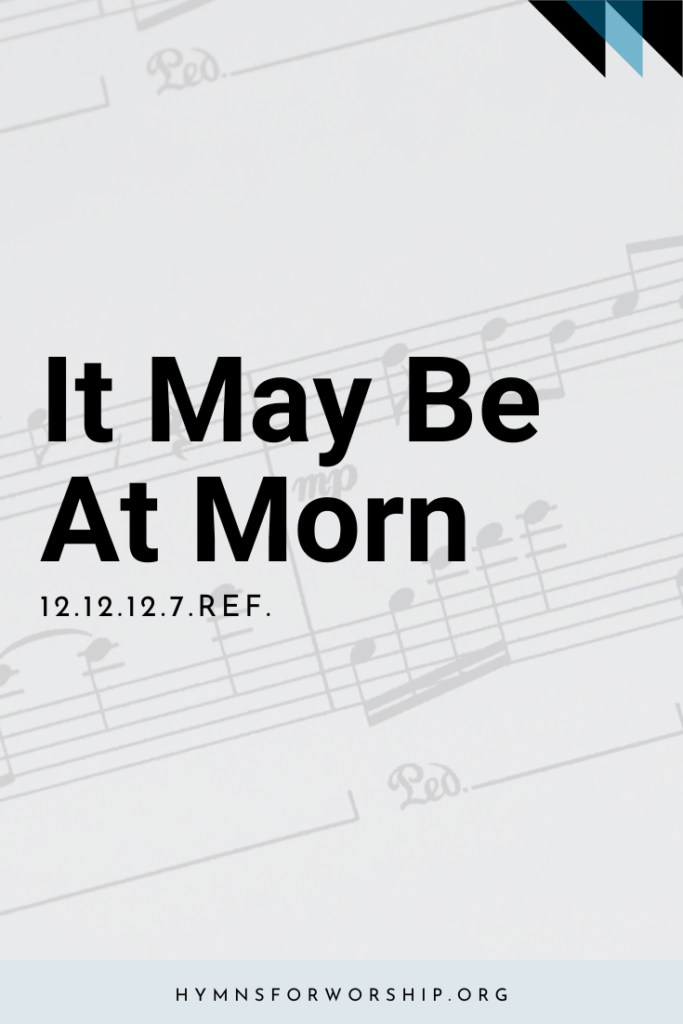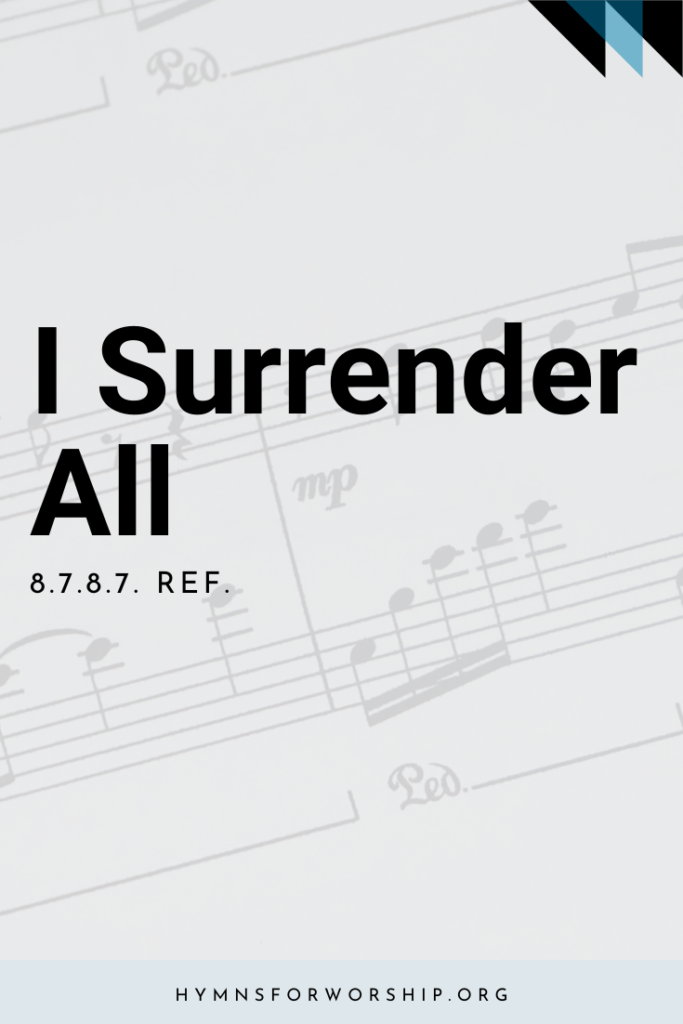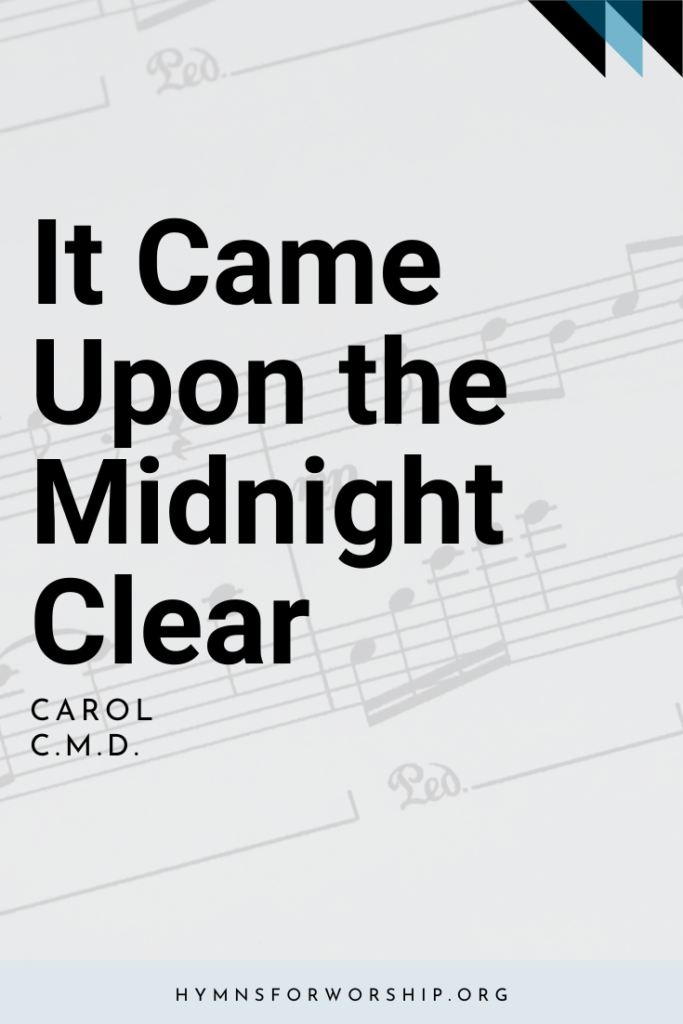WORSHIP >> Adoration & Praise
SDAH 5
All my hope on God is founded;
He doth still my trust renew.
Me through change and chance He guideth,
Only good and only true.
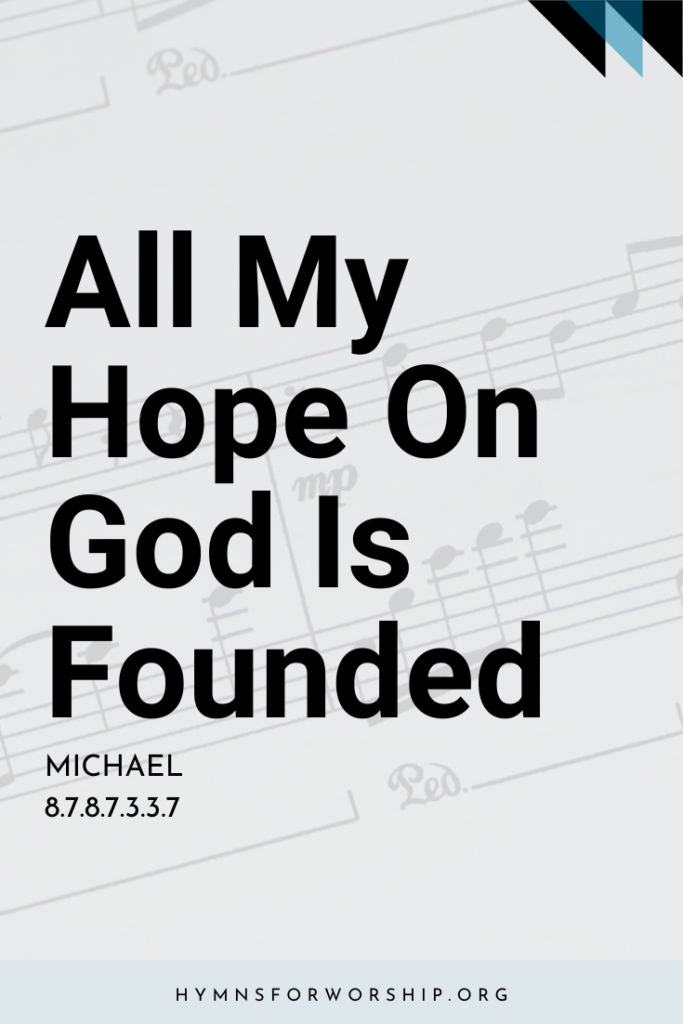
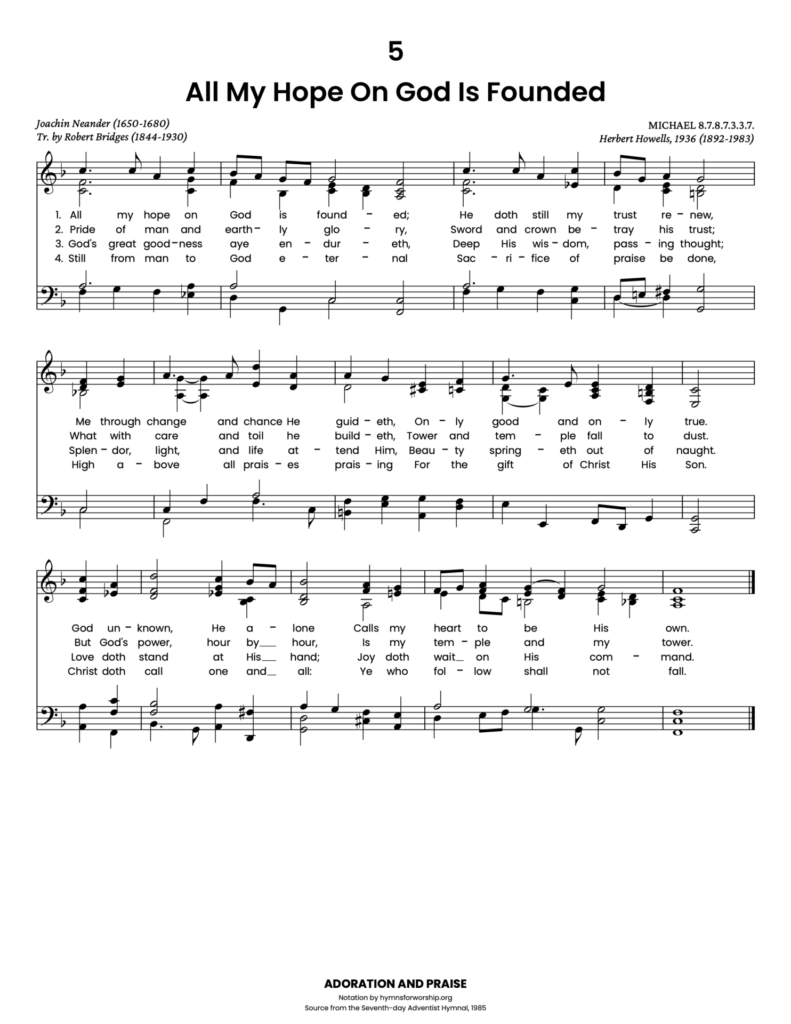
Get the hymn sheet in other keys here
For Worship Leaders
Make each hymn more meaningful with these helpful tools: Short, ready-to-use hymn introductions for church bulletins, multiple ways to introduce a hymn based on your worship theme and in-depth history and insights to enrich your song service.
Hymn Spotlight: All My Hope on God Is Founded
A hymn of trust and devotion, All My Hope on God Is Founded began as a mealtime prayer written in German by Joachim Neander (1650–1680). In the late 19th century, Robert Seymour Bridges, England’s Poet Laureate, adapted and expanded Neander’s words, shaping them into an entirely new hymn of faith and reliance on God. First published in The Yattendon Hymnal (1899), it has since been recognized as a masterpiece of English hymnody.
Bridges, a highly educated physician-turned-poet, was deeply concerned with improving the quality of church music. His elegant text expresses unwavering confidence in God, reminding us that earthly treasures fade, but God alone remains steadfast:
“Mortal pride and earthly glory,Sword and crown betray His trust;What with care and toil He buildeth, Tower and temple fall to dust.”
The tune MICHAEL was composed by Herbert Howells (1892–1983), a distinguished British composer and church musician. Though originally overlooked, this majestic melody gained recognition in the 1960s and has since become a beloved hymn tune, with its soaring phrases reinforcing the hymn’s theme of divine faithfulness.
As we sing today, may we renew our trust in God, who alone is our foundation, our guide, and our eternal hope!


Text
1
All my hope on God is founded;
He doth still my trust renew.
Me through change and chance He guideth,
Only good and only true.
God unknown, He alone
Calls my heart to be His own.
2
Pride of man and earthly glory,
Sword and crown betray his trust;
What with care and toil he buildeth,
Tower and temple fall to dust.
But God’s power, hour by hour,
Is my temple and my tower.
3
God’s great goodness aye endureth,
Deep His wisdom, passing thought;
Splendor, light and life attend Him,
Beauty springeth out of naught.
Love doth stand at His hand;
Joy doth wait on His command.
4
Still from man to God eternal,
Sacrifice of praise be done.
High above all praises praising,
For the gift of Christ His son.
Christ doth call one and all:
Ye who follow shall not fall.

Hymn Info
Biblical Reference
(a) 1 Tim 1:16 (b)Prov 29:23 (c) Ps 92:5 (d) Ps 16:11 (e) Heb 13:15
Author
Joachim Neander (1650-1680)
Translator
Robert Bridges (1844-1930)
Performance Suggestions
Unison
Copyright
Music reproduced by permission of Novello & Company Limited.
Hymn Tune
MICHAEL
Metrical Number
8.7.8.7.3.3.7.
Composer
Herbert Howells (1892-1983)
Year Composed
1936
Theme
ADORATION & PRAISE
Recommended Reading
The year was 1670. The Pietist movement was sweeping fast across the Protestant areas of Germany. Many sermons placed an emphasis on personal religion. And at St. Martin’s church in Bremen, it was no different.
Using 1 Peter 1 as a basis of his sermon, the preacher gave a powerful call to a real spiritual rebirth, a true inward holiness.
In the midst of the congregation, a young man listened, dumbfounded and abashed. He and his friend came to church with every intention to make a joke out of the whole sermon. But as he listened, the discourse turned out to be nothing like he heard before. New, not really. But it was definitely straight, heartfelt and earnest.
The preacher, Theodore Undereyk, a pioneer of pietism in the German Reformed Church. The wild 20-year old young man, Joachim Neander, the hymn writer for the famous hymn, “Praise to the Lord, the Almighty.”
But, let’s not get ahead of ourselves here.
